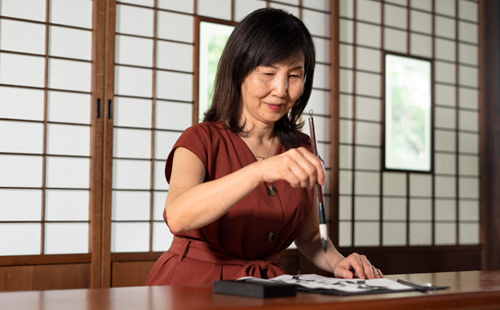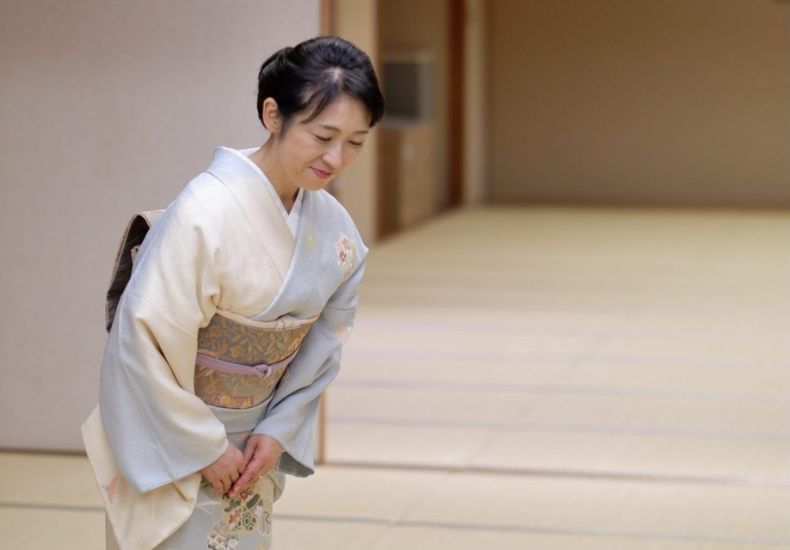Discover Langma’s Japanese Language Course (ラングマの日本語コースをご紹介します)
Learning Japanese through Langma’s program exposes students not only to the language but also to Japan's rich cultural experience. Langma offers a variety of options to students to study or work in Japan, including scholarships, internships, and jobs. We put special emphasis on grammar, practical communication, and the skillset required for Japanese proficiency exams such as the JLPT (Japanese-Language Proficiency Test), including pronunciation and vocabulary. Langma’s Japanese courses are for all levels (from N5 elementary to N1 advanced) and aim at enhancing conversational skills. We offer on-site and online flexible class options to facilitate easy learning for the students.
Begin your journey with Langma International to gain proficiency in the Japanese language and enjoy the exciting opportunities waiting for your career in Japan!
Japan(日本)
Japan, situated in the Pacific Ocean, is an East Asian island nation composed of four large islands: Hokkaido, Shikoku, Kyushu, and Honshu. The country offers spectacular scenery, ranging from cold, snowy mountains to warm, sandy beaches. From the ultra-modern, neon-lit Tokyo to the quiet centuries-old temples of Kyoto, you simply cannot separate culture, art, and technology from one another. Japanese values are renowned worldwide, along with Japan’s age-old, well-kept traditions, and the country is regarded as a future-oriented, innovative society.
The Japanese Language(日本語)
Japanese is an innovative language which uses a combination of three major scripts: Hiragana, Katakana, and Kanji. It is a language of global business because it is spoken by more than 125 million people worldwide. Japanese grammar depends heavily on context, levels of politeness, and subtle words, enabling the speaker to express shades of meaning in conversation. The Japanese phonetic system offers a wide range of expressive possibilities. The language represents Japan’s past and cultural identity, but it is evolving while maintaining its strong traditions.
Japanese Culture(日本の文化)
Japanese culture emphasises hard work, reverence, and social harmony. The Japanese follow their rich cultural heritage by practising the tea ceremony, wearing a kimono, and studying traditional arts and crafts from early childhood. They never fail to show modesty and humility. When one bows longer and more deeply, it shows that they respect more. Furthermore, the Japanese practise two religions simultaneously, i.e., they are both Buddhists and Shintoists. The Japanese are very particular about hygiene, purity, and cleanliness, which originates in Shintoism, whereas perfectionism and minimalism originate in Zen Buddhism.
Japanese Festivals and Traditions(日本の祭りと伝統)
Traditional Japanese festivals are mainly based on religious celebrations of the harvest and seasonal changes. Each of Japan's 47 prefectures has its own festival, commonly held in the summer. Local people usually dress in a yukata and a pair of geta (sandals) when they attend these festivals and take part. The most famous Japanese festivals are the Gion Festival in Kyoto, the Awa Odori Festival in Tokushima, the Nebuta Festival in Aomori, and a Dance festival held during the Obon-Week, Tsukimi (Moon viewing), and more. The Japanese like to celebrate the seasonal changes as a way of showing their respect for the new beginnings.
Japanese Art and Literature(日本の芸術と文学)
Japan has a rich artistic legacy and developed its own art forms, such as ikebana, ukiyo-e, and kabuki. Japanese art is a mix of old and new elements, including not only calligraphy and sumi-e but also Hokusai’s famous prints. Present-day artists such as Takashi Murakami and Yayoi Kusama keep the tradition alive worldwide, while manga and anime are ways in which classical aesthetics meet modern storytelling. The passage of Japanese literature is similar to that of art, going from Murasaki Shikibu’s ‘The Tale of Genji’ to the works of Sōseki, Mishima, and Haruki Murakami, which are concerned with identity, feeling, and spirituality, and mirror the cultural and philosophical drift of Japan.
Japanese Cuisine(日本料理)
Japanese cuisine is centred around rice, or gohan and is regarded as a healthier alternative to wheat. It is the primary source of life and the most essential food in rituals, festivals, and meals, from onigiri to kaiseki. Sake, made from rice, is a crucial drink in both celebrations and traditions, and the place and the weather influence its taste. Japanese meals are usually composed of grilled fish, miso soup, ramen, or rice bowls. The seas around Japan offer plenty of fresh fish, the main ingredients in sashimi and sushi, which are favourites across the country. At the same time, delicate wagashi desserts are the reflection of the seasons’ natures and are the perfect match for green tea.
Japanese Innovations(日本の革新技術)
Japan has been a global leader in technology and engineering for a long time, and the rest of the world keeps an eye on Japanese innovations when looking for the next groundbreaking technology, whether it might be industrial robots or advanced medical devices. The Japanese car industry has not only been a source of global influence but also a complete game-changer in the worldwide automotive sector. The first mass-produced hybrid car was the Toyota Prius in Japan in 1997, and the trend of developing environmentally friendly transport has been established globally since then. Apart from being a leader in recycling, Japan is also a front-runner in green energy and is constructing eco-friendly cities of the future, such as Toyota's Woven City. Over the years, Japan has been a source of revolutionary ideas in science and medicine. The contribution of Japanese scientists is most significant when it comes to pushing the limits in areas like robotics, quantum computing, and artificial intelligence, and they are motivated by their never-give-up spirit and insatiable quest for knowledge.
Opportunities after learning the Japanese Language(日本語学習後に広がるチャンス)
Japanese proficiency will provide you with a variety of job opportunities across sectors, e.g., under Japan's Specified Skilled Worker (SSW) program. Being proficient in the Japanese language opens doors to careers in translation, interpretation, tourism, hospitality, IT, business liaison, and cultural content creation. In Japan, language skills can make a person more employable in industries such as caregiving, food service, manufacturing, agriculture, building cleaning, and other fields eligible for SSW, where communication with colleagues, clients, and supervisors is crucial. Besides the SSW route, mastering Japanese allows you to study at a university in Japan, work in a multinational company, and do remote jobs for Japanese firms, thus being a valuable skill for both global and Japan-based career growth.









